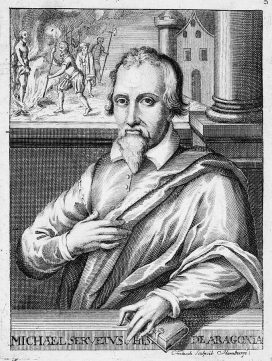Facts about Michael Servetus
Michael Servetus Biography
Michael Servetus was a 16th century scientist and Christian theologian who was burned alive in Geneva in 1553 for denying the concept of the Trinity.
From Spain but educated in France, Michael Servetus worked as a physician throughout most of his career, and was known during his lifetime for a popular book on pharmacology. He also had a keen interest in Christianity and corresponded with John Calvin in Geneva during the 1540s.
John Calvin didn’t approve of the religious views of Servetus, and objected even more to his impudence. Servetus published De Trinitatis Erroribus (The Errors of the Trinity) in 1531, and argued against the Holy Trinity and infant baptism, ideas that eventually ran him afoul of the Inquisition.
Servetus was arrested in Vienne, France after the publication in 1553 of Christianismi Resitutio (The Restoration of Christianity), but he escaped. For unknown reasons, he visited Calvin’s Geneva, where Servetus was captured and tried for being a heretic. He was burned at the stake, along with nearly all copies of his book.
The execution of Servetus was widely decried and remains a black mark on the legacy of John Calvin, who encouraged it (though Calvin suggested beheading as a less terrible method).
Christianismi Resitutio is also famous because it contains a mostly accurate description of pulmonary circulation, revealing Servetus’s keen understanding of anatomy.
Extra credit
Michael Servetus is also known as Miguel Servet, Miguel Serveto and Michel de Villeneuve.

